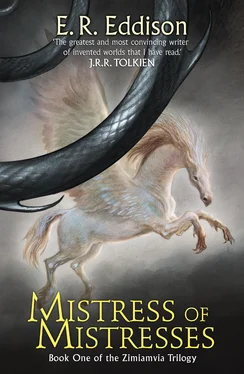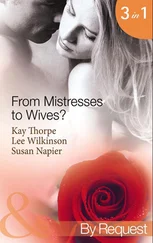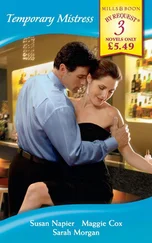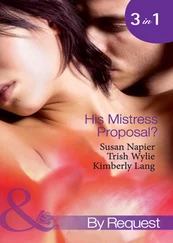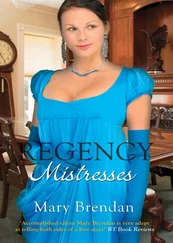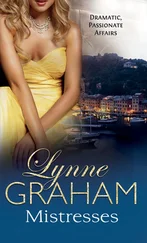‘There’s one more cloud against the sun,’ said Egan; ‘so have I seen storms a-brewing. Your grace was informed ere you did enter the presence-chamber how that the Admiral and the Chancellor, that were here but a little before, were gone forth in a flutter of seeming urgency upon word brought them from without. Be advised: leave your custom, and go not today among the general throng below the carpet.’
Barganax said, ‘It is seven year today since I did come of age and take power here in Zayana, and never yet have I omitted the custom I did that day begin.’
He stood up to go, but now Medor spoke against it: ‘There were no harm to change it; and remember, did aught go miss, ’twere more than your own life you laid in hazard. Go not, Lord.’
‘Vandermast,’ said Barganax, ‘what say you?’
‘They have given their reasons,’ answered that ancient man. ‘I would hear your grace’s reasons on the contrary part.’
‘Imprimis,’ said the Duke, ‘whose turn should it serve to yerk me one under the fifth rib? Not old Jeronimy’s, nor theirs that stayed with him: it should raise a cloud of wasps about their ears should in three days sweep ’em out of Meszria. Nor yet our discontented lords: they cry for action, and that were a strange road, to murder me: by my soul, they can look for no other to lead ’em. The King’s? True, there’s some coldness betwixt us, but I’ll not suspect him of things myself would not soil my hands withal. But indeed I do know all these men. Pew! I am not to begin Duke.’
‘Horius Parry,’ said Medor then, ‘would not stick to murder you.’
‘His hands are full, playing spoil-five with the King for Rerek,’ the Duke replied. ‘Come, Medor,’ he said: ‘I am minded to go my own gate; and when I must skulk and beware in my own presence-chamber, then were I best slain indeed, and high time to say adieu. Attend me, Medor. But is not this right reason?’ said he over his shoulder, passing by, to Doctor Vandermast. Vandermast made no reply, but as he and the Duke crossed glances it was as if two diverse wisdoms of age and of hot youth rose from their wells, recognized each his make, and clipped hands together.
Now was Duke Barganax come about three-quarters of his way down from the throne to the lower end of the chamber, walking and discoursing with this man and that, with Medor at his elbow, when there came a stir about the main doorway, as if some would have entrance but, because of the lateness and because the Duke had voided the throne, was denied. The Duke sent one to inquire and see; that one came back on the instant to say that here was the Earl Roder craved audience and would not take their no for it. ‘Let him come in,’ said the Duke, and received him where he stood.
‘My lord Duke,’ said Roder, ‘I am obliged to kiss your hand; and, ere I go further in a business which in this public place I dare not pronounce but between my teeth, I would entreat you of a matter, easy for you to grant, and condition absolute of our more large and secret conference.’
‘Our fashion is not curious,’ answered the Duke, marking his disordered countenance. ‘Yet do I wonder a little, if the matter crieth so loud for urgency, why you came not sooner. Or why sent you with so much parade of secrecy (for I saw it, my lord, through eyes that serve me) to fetch away the Admiral and the Chancellor, already pricked off for the presence? Or why, for a last point of wonder, you now come here without them.’
‘That is the condition I spoke on,’ answered he. ‘I am to beseek you confirm us, under your royal word, safe conduct and assurance all and severally of our lives and persons, which done we shall straight to the matter, but until then we may not.’
To this the Duke listened with apparent wonder, then fell a-laughing. ‘What coil’s here?’ he said. ‘Sure, the man’s frantic. What, Medor, I shall be apt to think they mean me mischief indeed, if their own sick minds do make ’em start like rabbits at such fairy-babes o’ their own imagining. Howbeit, content you, Earl; I do swear you peace and grith, safe conduct to come and to go with liberty of life and of body on all lawful occasions in my dukedom of Zayana, for you and for my lord High Admiral Jeronimy and for my lord Chancellor Beroald; and unto this you have my royal word, as I do trow on the high and blessed Gods and Goddesses Who keep the wide heavens.’
‘I am beholden to your grace,’ said the Earl. ‘And yet, were it ask a further boon, I think they would treasure it much in writing.’
The Duke’s eye gleamed. ‘You have witnesses, my lord. And indeed, if my bond were better than my word, you might stand in some peril now.’
‘Forgive me,’ said Roder then. ‘We are content with your royal word, and in this I am the mouthpiece of all three of us. And truly,’ said he, chuckling in his beard, ‘I may now disclose to your grace the inwardness of my calling of ’em out: ’twas because we should not all three be in your hand afore we had ta’en assurance of our safety. But now, had you been minded to entreat me evilly, he and Beroald do stand at your doors without the citadel with enough stout lads mustered under arms as—’
The blood rushed to Barganax’s face and neck, and his hand leapt to the dagger at his belt. Roder said, ‘I am sorry. But your grace will not forget your oath, nor you will not strike a weaponless man. Will’t please you enter your closet and suffer me bring in the Admiral and the Chancellor, when we shall confer with you about matters of most weighty consequence.’
‘You are a brave man, Roder,’ said Barganax at length, folding his arms and speaking close in the Earl’s face. ‘Bring in your friends. This circumspection of peace-pledges, and this armed alertness when we were never yet at variance, are clean past my understanding. But tell ’em, for their better counsel, ’twas well you had my oath before I knew you threatened force against me. Had I known or seen it, my answer had been pat and to the purpose.’
The Earl Roder, as a man that hath escaped a danger the full menace of which he had not apprehended till the danger was past, went forth somewhat shaken from before the face of the Duke.
When they were set in Duke Barganax’s closet, the lord Admiral took up the word: they were but five there, those three great officers of state, the Duke himself and Doctor Vandermast. ‘It was unadvisedly done,’ said the Admiral; ‘and we will first tender to your grace our large regrets and most humbly crave your pardon. Yet shall you consider, when you know all, that these be great news and sudden, and something in a manner to root up all past custom and example, so as we know not where we stand, in a manner; and albeit we do well think, my lord Duke, that it shall still lie to our interest, both yours and ours, to hold each by other, sith it well may so come about as that like dangers from the like quarter should menace us both, yet in a manner—’
‘My good lord Admiral,’ said the Duke, ‘I pray you put out of mind this of the soldiers. I am satisfied: not another thought will I give it. But, for the matter in hand, we shall the more readily follow your argument if you will first tell us these news you speak on.’
‘Earl Roder,’ said Jeronimy, ‘hath rid from the north this morning with tidings of sudden and great import.’
‘Give me in a word, what is it?’ said the Duke.
‘Then,’ said Roder, ‘in a word: the King is dead.’
‘Heavy news; but ’tis ten months old.’
‘Nay, nay: King Styllis is dead,’ said Roder. ‘Four days since, in Rerek, in’s camp a little beside Hornmere. I was by his bed, held his hand in mine when his soul took flight.’
Those three lords narrowly watched the Duke who, from his late posture of careless ease, was sat upright at these tidings, his strong and delicate hands grasping the edge of the table of carved sandalwood. His eyes were on Roder’s, but seemed to gaze through and beyond him: for a minute he was silent. At length he spoke, saying, ‘He died young. The Gods rest his soul. He was my brother, though he ne’er was good to me.’ He lowered his gaze and was silent again, his fingers drumming on the table. None spoke. Then, as if waking to common things, he looked up and said sharply: ‘Dead, by what means?’
Читать дальше
